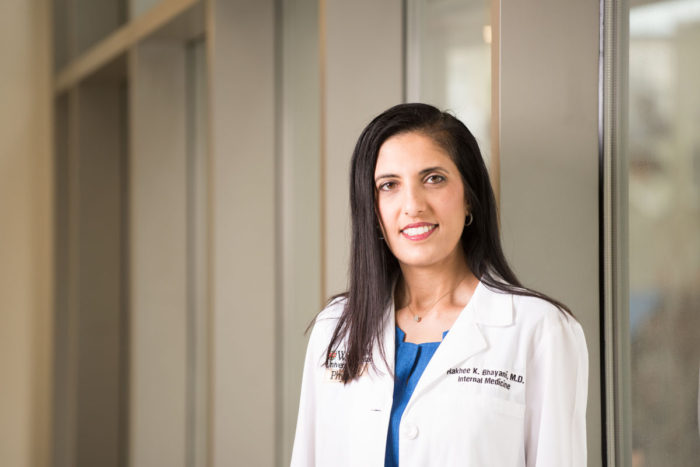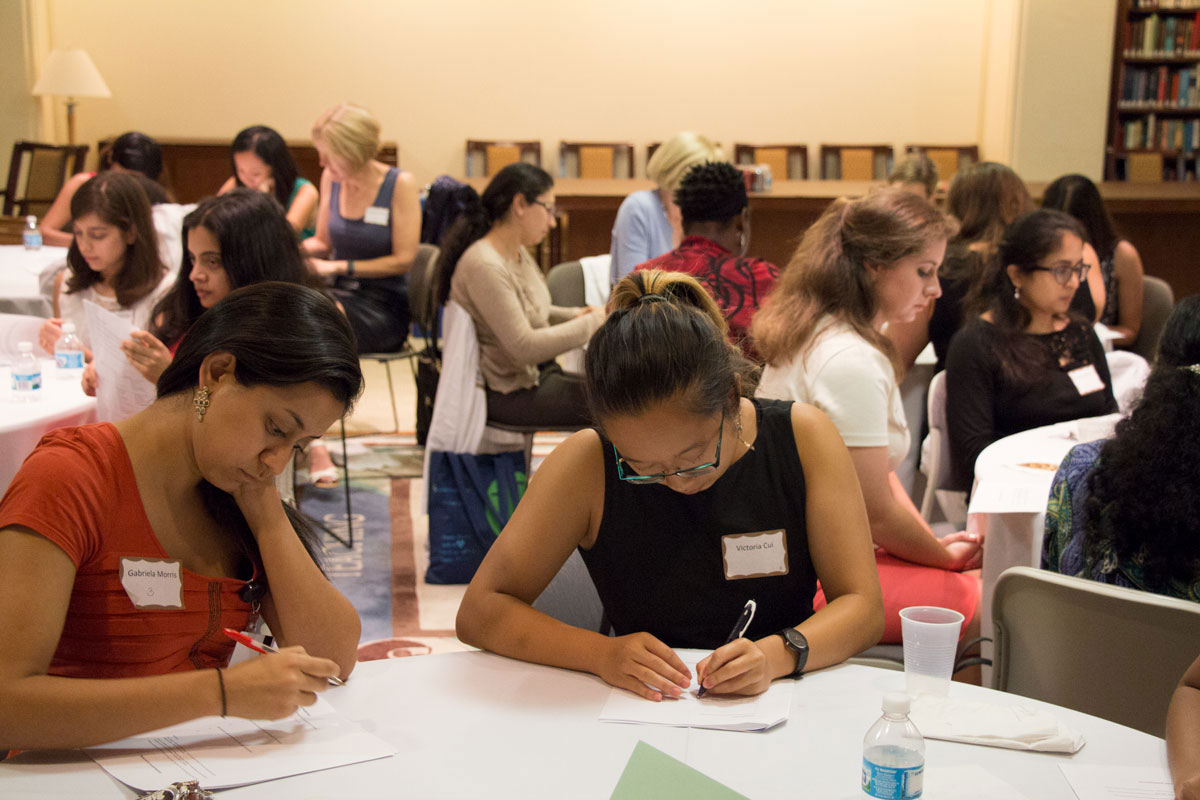Forum for Women in Medicine boosts female physicians, trainees
Group addresses experiences of female physicians
 Matt Miller
Matt MillerThe Forum for Women in Medicine was formed by Rakhee K. Bhayani, MD, an associate professor of medicine at Washington University School of Medicine in St. Louis. The group for female trainees in the Department of Medicine offers workshops and talks on topics such as work and life balance and gender bias.
During an informal gathering with female medical residents a few years ago, Rakhee K. Bhayani, MD, recognized a familiar refrain. Many of the women said they felt invisible.
“Each spoke of experiences with gender bias, such as not being seen as a team leader, being talked over by junior male colleagues and not being addressed as a doctor,” said Bhayani, an associate professor of medicine at Washington University School of Medicine in St. Louis. “The frustration in their voices was troubling. Their stories also brought back memories from my early career as a resident.”
Their stories inspired Bhayani to create the Department of Medicine’s Forum for Women in Medicine (FWIM) in 2014 to support the professional and personal development of female trainees. Since its founding, Bhayani has served as the group’s director, helping to organize workshops, lectures and networking events on topics such as time management, building leadership skills, self-advocacy, mentorships and work-life balance.
“We want to foster camaraderie among the Department of Medicine’s female faculty members and trainees in the university’s postdoctoral programs, which includes residents, interns and fellows,” said Bhayani, an internal medicine physician who treats patients at Barnes-Jewish Hospital and supervises residents at the Center for Outpatient Health. “It is also helpful and inspiring to hear how other women have overcome similar situations in their careers — for example, balancing family with the demands of being a physician.”
Indeed. A study in JAMA Internal Medicine published in late 2017 suggested that female residents and physicians face a greater risk of depression than their male colleagues, in part because they may experience subtle and overt gender bias in their profession while also bearing the bulk of household and child-care responsibilities.
“Balancing family and career is a common struggle for many women in multiple different types of careers,” said Bhayani, a mother of two daughters. “Our group focuses on the particular aspects of the medical profession, such as the extremely long work hours and the emotional toll of dealing regularly with life-or-death issues, and also on the broader issues that women face in the workplace, such as gender bias. My goal is to provide the trainees with tools to help them flourish in their careers.”
 E. Holland Durando
E. Holland DurandoThe group is championed by Victoria J. Fraser, MD, the Adolphus Busch Professor of Medicine and head of the Department of Medicine. “It’s critical to support women in medicine,” said Fraser, who has hosted events for female trainees at her home and mentored dozens of new physicians.
“I am proud of and grateful to Dr. Bhayani for her tremendous leadership of the Forum for Women in Medicine. She has amazing organizational skills and insights into the needs of women trainees and tremendous ideas about how best to advance their careers and provide them more leadership opportunities,” Fraser added. “She is an inspiration to many, and she has made the Forum for Women in Medicine a successful and high-impact program for women in our department.”
FWIM sometimes partners with other School of Medicine organizations that share goals aimed at supporting women in medicine. For instance, Bhayani’s group works closely with the medical student-run branch of the American Medical Women’s Association, including its members in FWIM workshops. FWIM also has collaborated with the Academic Women’s Network (AWN), which addresses important initiatives for women faculty across all School of Medicine departments.
FWIM and AWN co-sponsored a recent seminar luncheon with Yvette Roubideaux, MD, director of the National Congress of American Indians Policy Research Center in Washington. During the talk, Roubideaux shared some of the career hurdles she has faced, and emphasized avoiding unnecessary distractions that detract from professional and personal goals.
“It’s OK to say no to things that steer you away from your goals and sap your energy,” said Roubideaux, who served in the Obama Administration as director of the Indian Health Service for the U.S. Department of Health and Human Services.
Roubideaux’s advice inspired Christina K. Anderson, MD, a third-year resident at Barnes-Jewish Hospital. “The encouragement she gave us to stay in our lanes and focus on our individual goals is extremely important for women because we often get roped into things that are not in our lane, and we are hesitant to say no,” she said.
“It is incredibly important to have groups like the Forum for Women in Medicine,” Anderson said. “We share similar experiences and challenges as women in medicine. Women supporting other women helps us to propel each other into positions of leadership and authority. Women have achieved equality on an admissions level as medical students, but not in upper-level leadership positions or committee and board memberships. It is valuable for us to have an open forum where we can talk about our unique issues and be understood and supported.”






